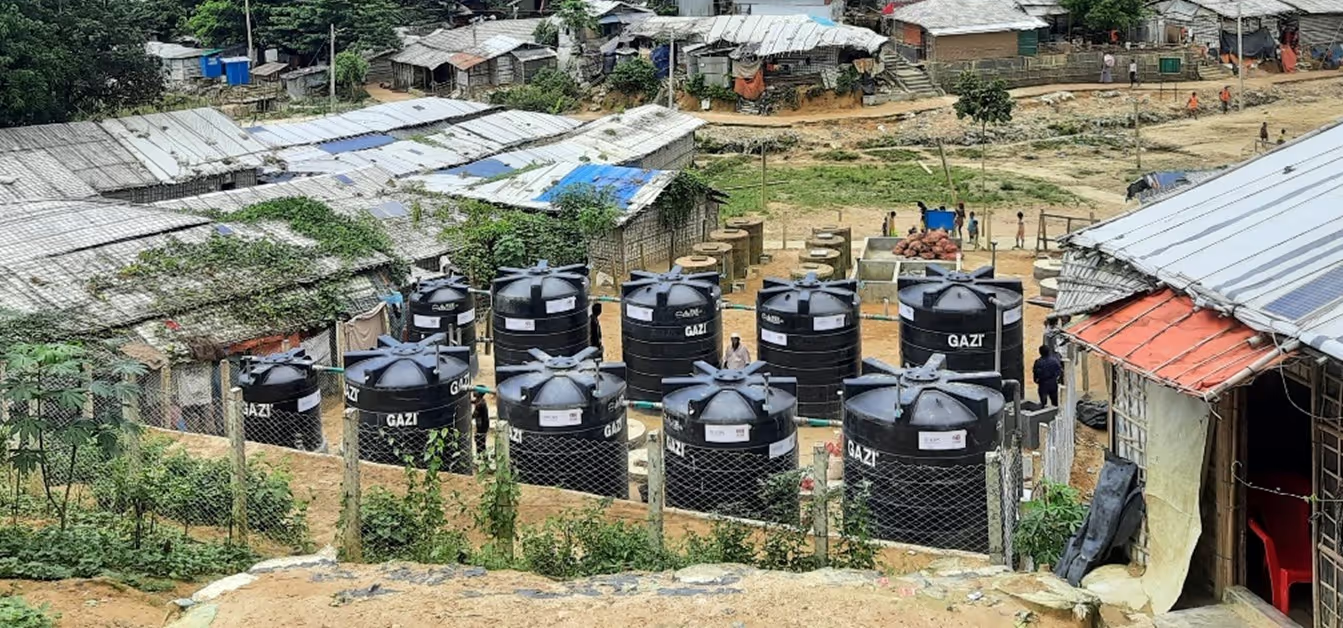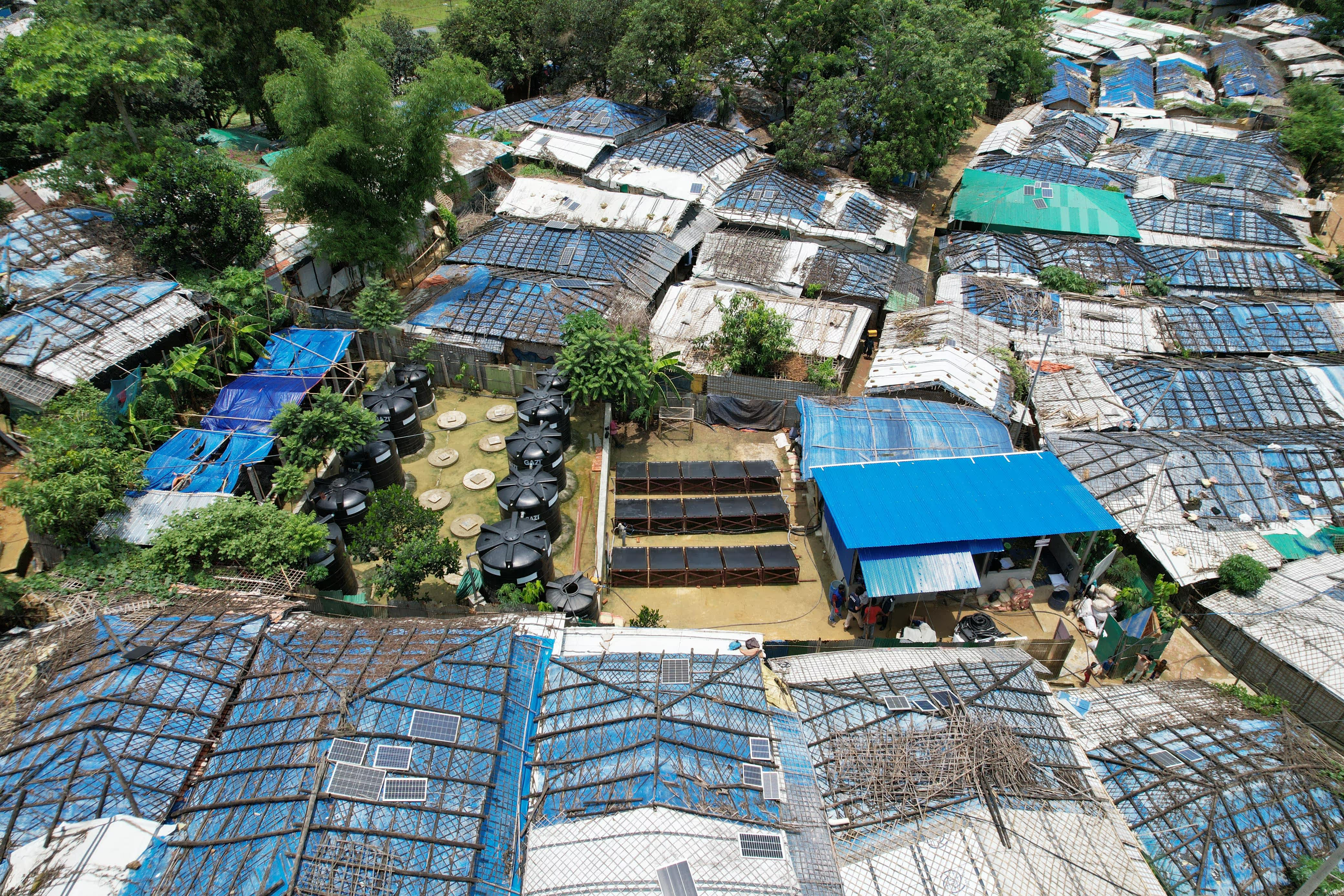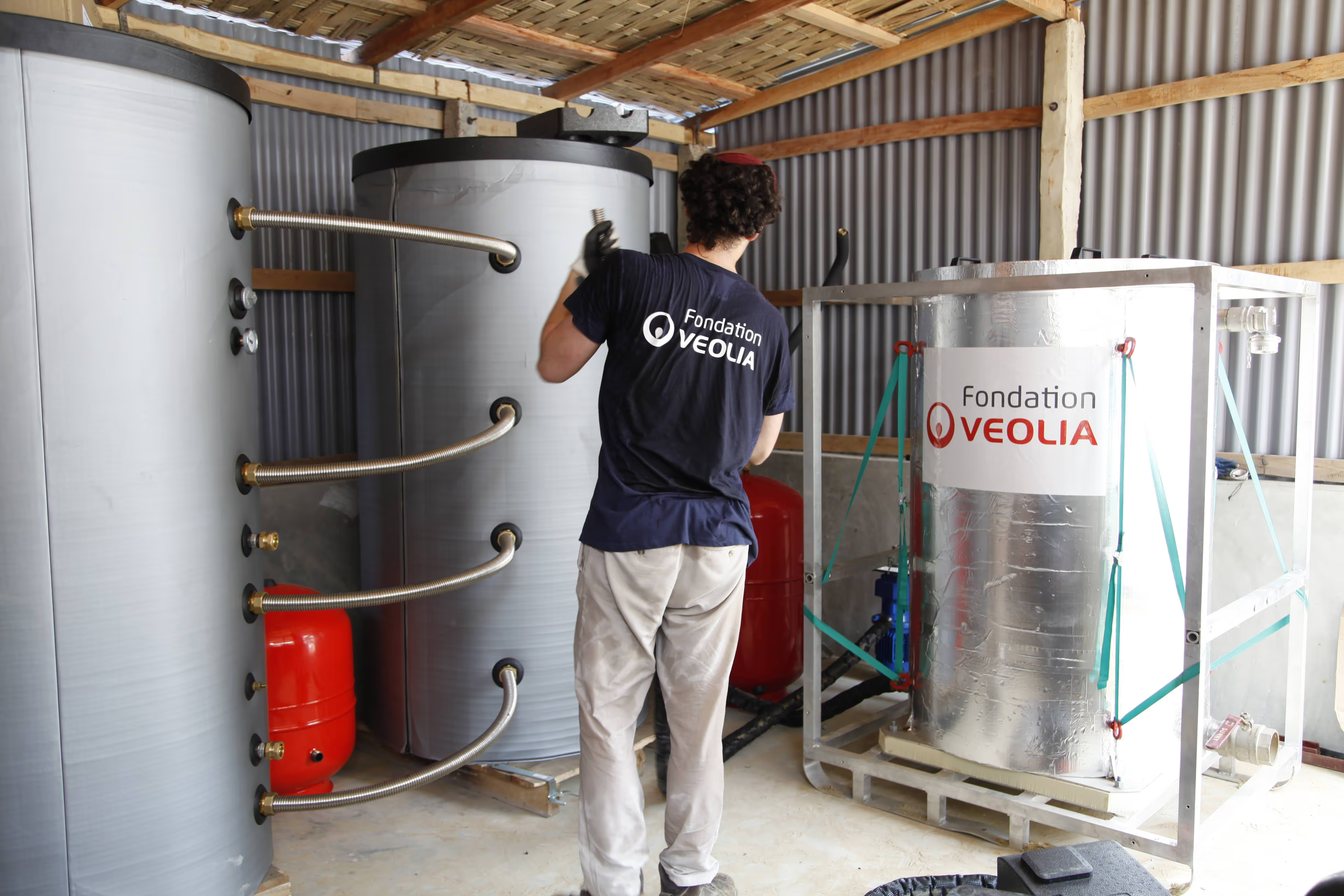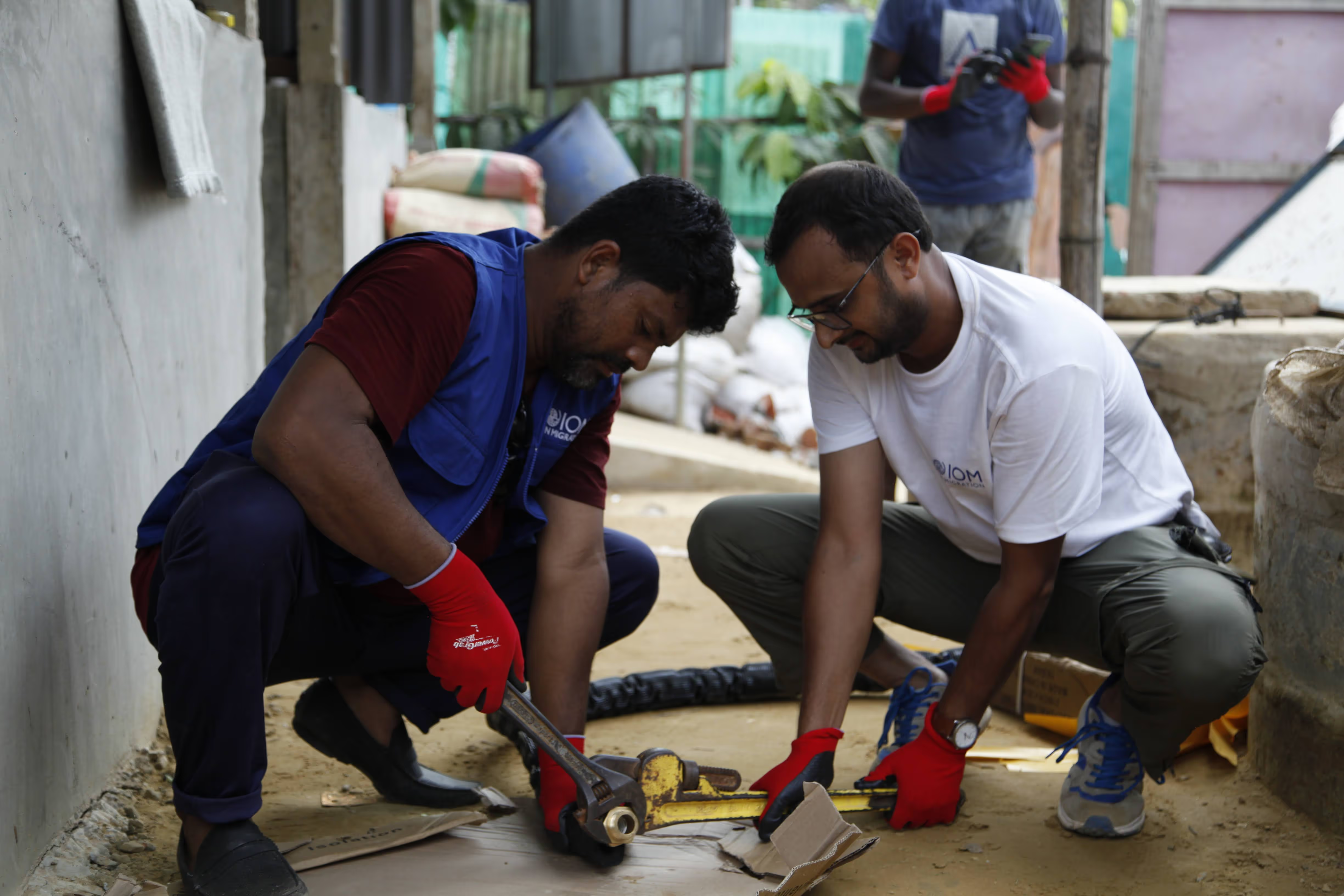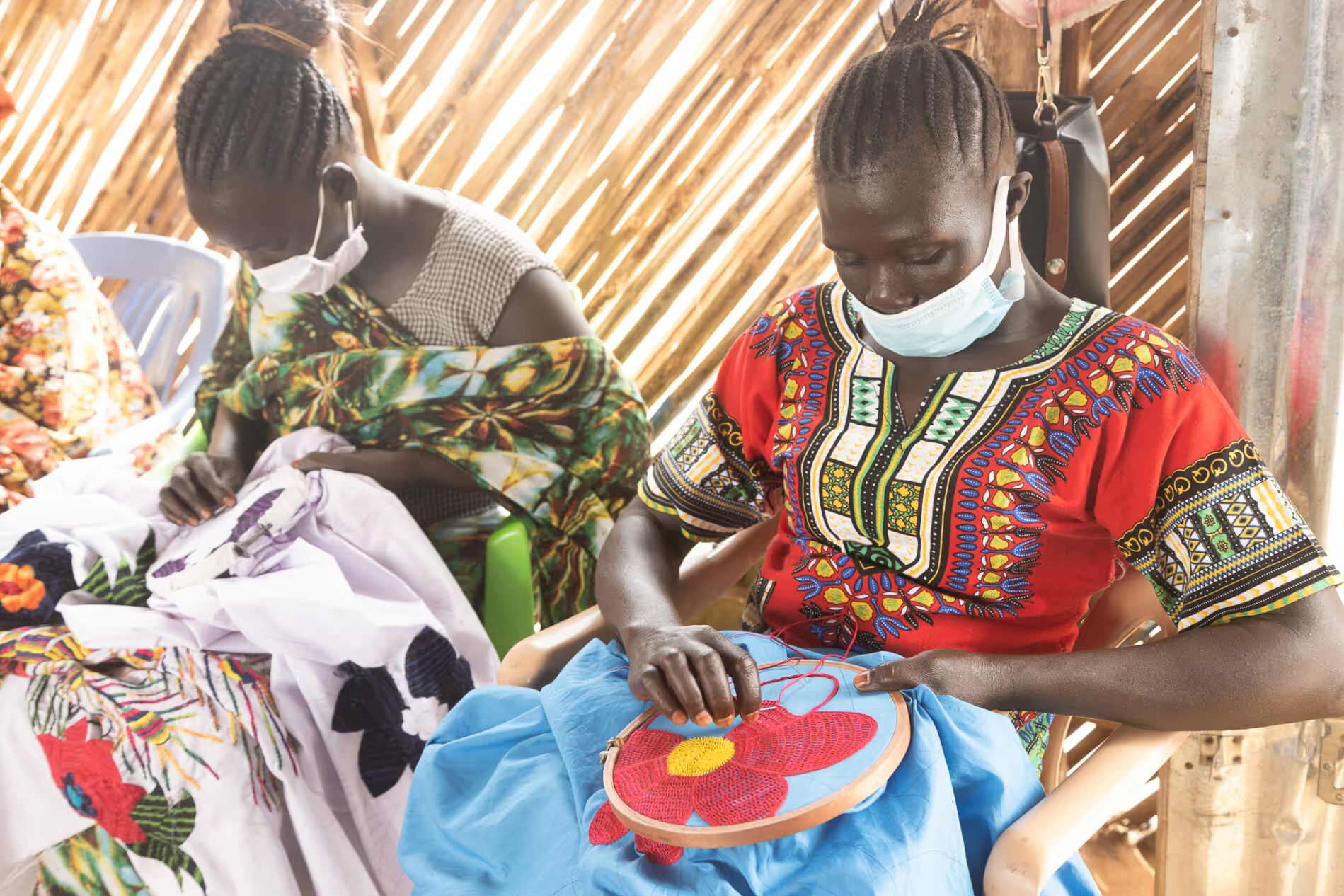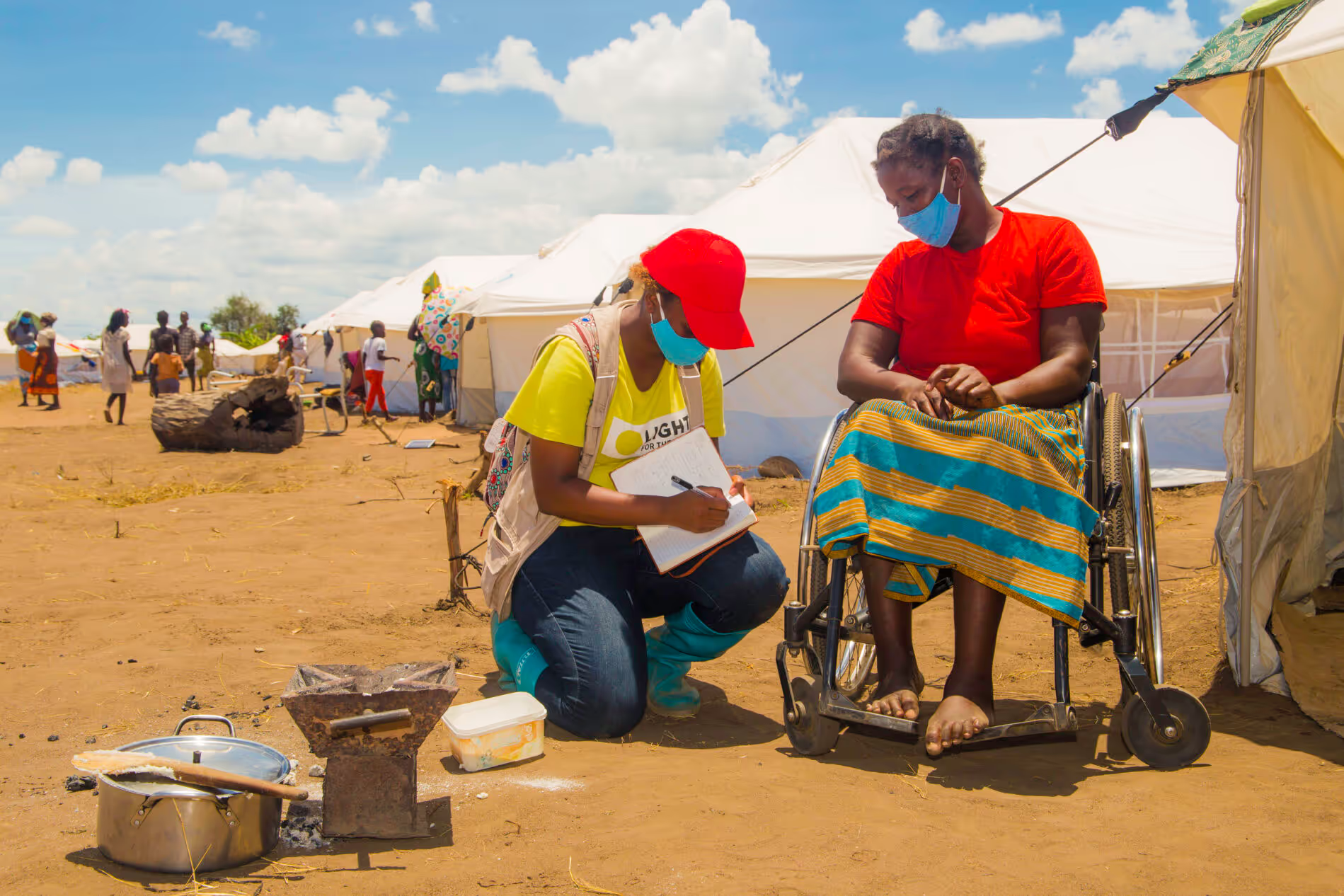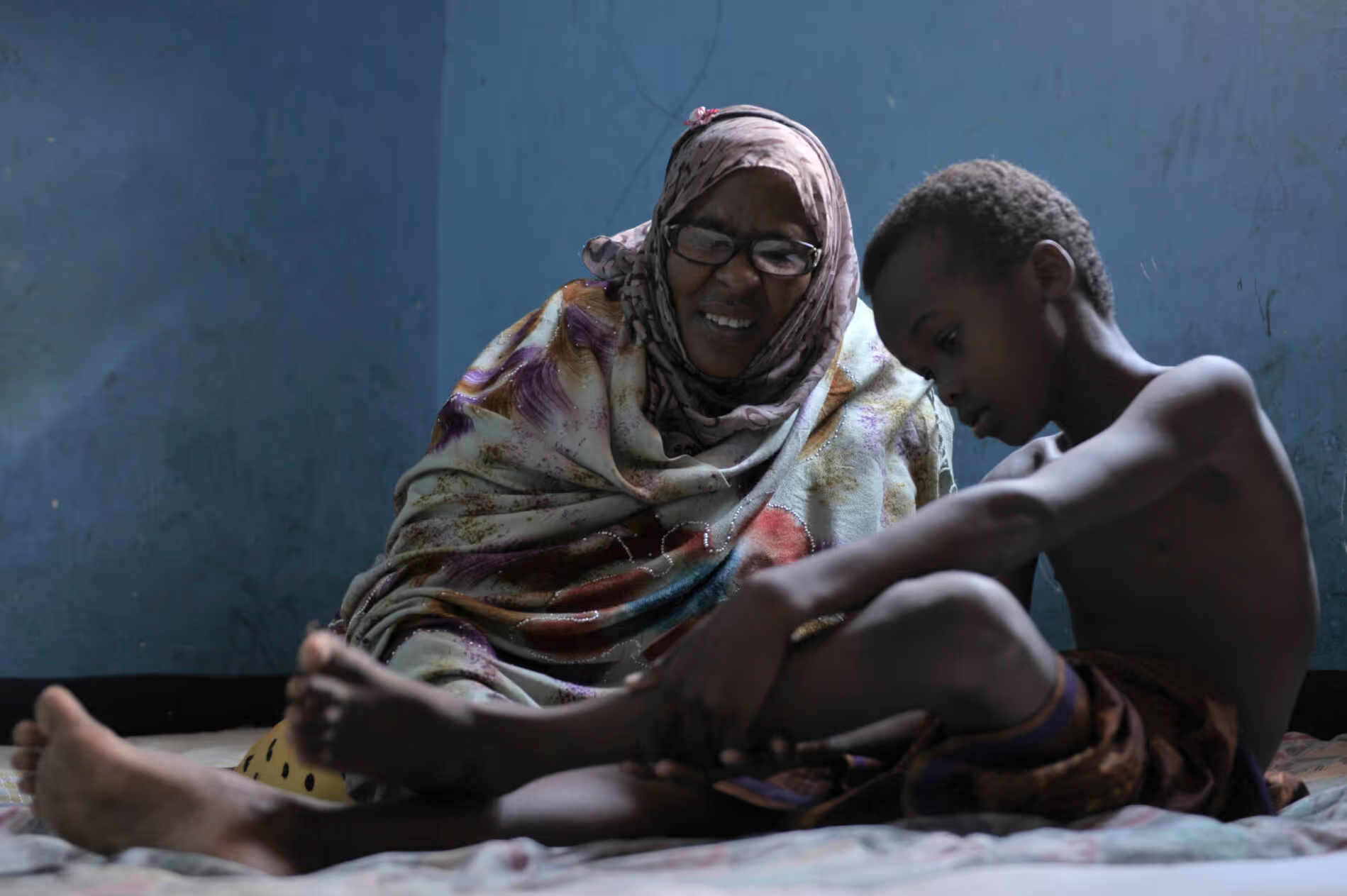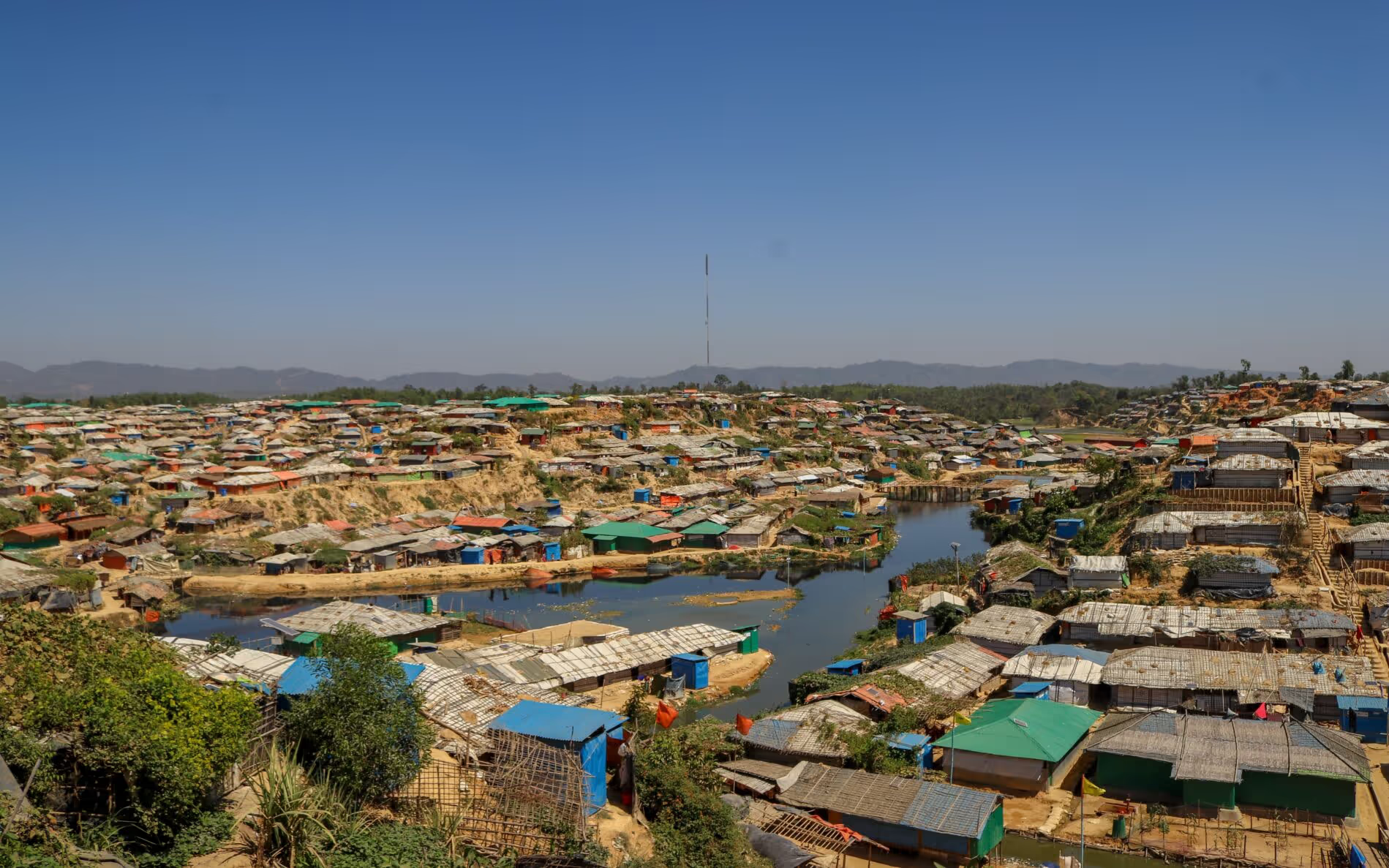Promoting Effluent Pasteurization for Cholera Prevention in Rohingya Refugee Camps
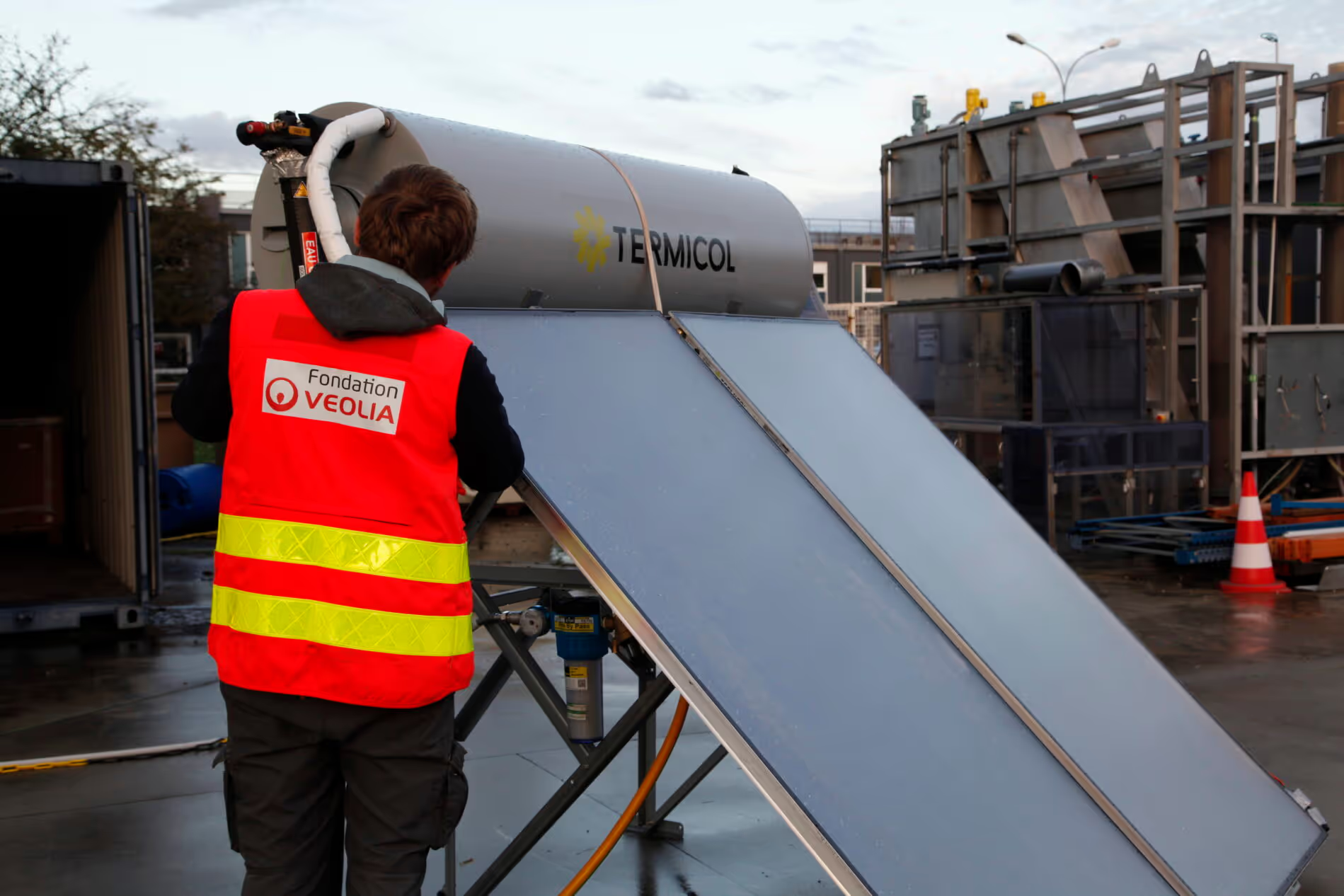
Project overview
IOM will work with partners to evaluate the effectiveness of pathogens reduction for existing and upgraded IOM Decentralized Wastewater Treatment System (DEWATS). Veolia Foundation will adapt its innovative technology: the skid of pasteurization with solar heating system to the existing DEWATS. The international health research institute (ICDDRB) based in Dhaka, will be engaged to monitor specific pathogens reduction and effluent parameters to gather evidence on innovative solutions.
Countries
Bangladesh
Organisations
IOM
Partners
International Centre for Diarrhoeal Disease Research, Bangladesh (ICDDR’B) , Veolia Foundation
Area of funding
Humanitarian Innovation
Grant amount
£170,000
Start date
02
January
2023
End date
02
November
2024
Project length (in months)
22
Funding calls
No items found.
Focus areas
No items found.
Topics
No items found.
Status
Closed
Project solution
This project offers [specific solution or intervention] to tackle [challenge]. By implementing [strategies, tools, or innovations], the project aims to achieve [desired outcomes]. The approach is designed to [specific actions or methods] to bring about meaningful change in [community, region, or issue area].
Expected outcomes
This project aims to achieve [specific outcomes], such as [measurable results, improvements, or changes]. The expected impact includes [benefits to the target community, advancements in research or innovation, or long-term effects]. By the end of the project, we anticipate [specific changes or milestones] that will contribute to [broader goals or objectives].
No items found.
WHAT HUMANITARIAN NEED IS BEING ADDRESSED?
In highly congested settings, such as the Rohingya camps, WASH actors face challenges to deliver faecal sludge treatment processes which provide an effective removal of pathogens. The challenges are largely due to limitation of space, which constrains the ability to include appropriate, safe and sustainable (cost efficient) aerobic processes in the treatment train. While anaerobic processes are fundamentally designed to remove organic loads, removal of pathogens is also achieved, although not to the degree to comply with national and international standards. Increasing the performance of pathogen removal in anaerobic processes could enable a less demanding aerobic steps or the use of strictly anaerobic trains of treatment. Moreover, the treated effluent would lead to a reduction in pathogens, enabling the safe reuse of water for irrigation purposes within the camp.
WHAT IS THE INNOVATIVE SOLUTION BEING ADOPTED AND HOW WILL IT IMPROVE EXISTING HUMANITARIAN PRACTICE?
The project will utilize the existing IOM designed Decentralized Wastewater Treatment System (IOM DEWATS). The treatment mechanism works by solids/liquid separation through settlement and filtration as well as some digestion of solids under anaerobic conditions. All material used in this system is locally available, can be constructed in a short period with training, and one system can serve 5,170 users with minimal land required.
This project aims to improve the efficiency of IOM's DEWATS system by retrofitting it with a final effluent pasteurization treatment process (solar heating system), providing evidence for replication in various contexts. In collaboration with our partners, the project will adapt their innovative pasteurization skid to utilize solar energy for pathogen inactivation. The Veolia Foundation will work closely with IOM to design a new solar power heating system tailored to the existing DEWATS design.
This entirely anaerobic solution can be adapted to densely populated humanitarian contexts with improved results in comparison to aerobic systems which are often less accepted by the host community and affected population. This kind of decentralized system simplifies negotiation with authorities who are often reluctant to allocate large areas of land for a centralized system, and which also requires high investment and skilled operation.
WHAT ARE THE EXPECTED OUTCOMES OF THIS PROJECT?
The research, field testing, and prototyping efforts are expected to yield significant results. We anticipate producing comprehensive materials and outputs that will contribute to the advancement of our project. These outcomes include:
- Enhanced Community Awareness: Beneficiaries will be well-informed about treatment facility improvements, fostering community engagement and support.
- Effective Collaboration: Collaborative efforts with the Health Sector, government stakeholders, and the WASH Sector will lead to defined common objectives and a streamlined approach.
- Informed Decision-Making: A baseline report will provide valuable insights into the impact of increased temperatures in anaerobic treatment systems on pathogen inactivation.
- Solar Integration: Retrofitting DEWATS with a solar heating system will enhance sustainability, and energy efficiency.
- Optimized pasteurization conditions: Defining research framework for finding optimal temperature and retention time for deactivation of specific pathogens.
- Technical Guidance: Adapted technical guidance and SOPs will ensure efficient operation, maintenance, and installation of the solar heating system.
- Institutional Support: Local-level presentations will garner institutional backing for scalable and replicable solutions.
- Global Reach: Dissemination at regional and global levels, including workshops and participation in the WASH cluster forum, will maximize the project’s impact through knowledge sharing.
No items found.
Project delivery & updates
Stay up to date with the latest developments from this project. Here, you will find details on what has been delivered, resources created, and regular updates as the project progresses. Access key documents, reports, and other materials to see how the project is making an impact.
No resources/updates have been published yet for this project. Sign up for our newsletter to stay informed about upcoming publications and updates!
Join our Newsletter
Resources
No items found.
Latest updates
No items found.
